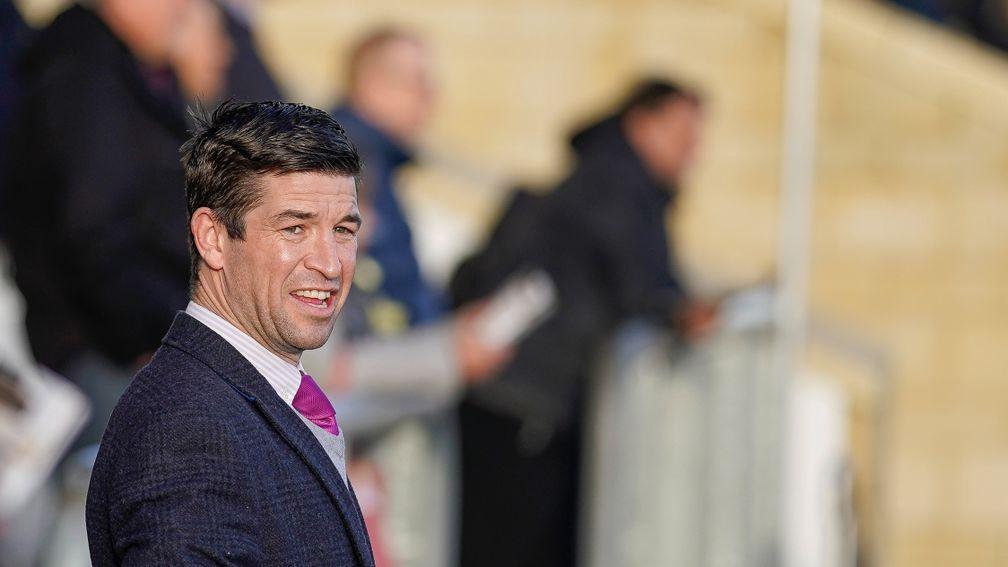Disgraceful conclusion to Dunne case exposes a system that isn't fit for purpose

Saturday is the day when everyone looks at us.
Most of them seemingly like what they see, which is heartening to those of us who regard the Grand National with reverence. From one year to the next, many millions of viewers have watched the great race live, regardless of whether it has been broadcast on the BBC, Channel 4 or ITV. It is a sporting jewel that transcends the platform on which it is televised, not surprisingly so given it also transcends horseracing. It was, is and hopefully always will be this sport's most precious connection with the wider public.
Yet that relationship has not always been secure. There have been periods when the Grand National's future has appeared precarious, most recently as a result of concerns for the safety of the horses taking part. Indeed, right back to the time of the first running in 1839, opponents have branded it cruel and demanded its abolition. The Grand National has therefore needed to evolve. Following the 165th running, evolution was not enough.
High-profile equine deaths in 2011 and 2012 sparked public and media outcry. The Grand National was under threat, a fact recognised by Aintree's leadership, the track's Jockey Club owners and the BHA. Wholesale changes were made, not least to the iconic fences. The old timber frames were replaced with plastic or birch. The likes of Becher's Brook, the Chair and the Canal Turn became easier for horses to negotiate. What took place was a radical transformation. It has undoubtedly altered the Grand National. It has likely also saved the Grand National.

We should not kid ourselves that this all took place because of lobbying from within the sport. There were, of course, many racing participants and stakeholders who found it increasingly hard to defend the world's most famous steeplechase as it was. There were others who believed any further modernisation would so drastically amend the nature of the contest as to make it unrecognisable.
Such opinion came from a good place but it was naive and dangerous. The Grand National had to change – and the overriding reason why it changed was centred on the recognition of public opinion.
We should be thankful for that public opinion. Those who work in racing, even those who simply love racing, can live in a bubble. People see what they want to see, impervious to the shifting sands of social approbation. More than most sports, horseracing can benefit from the thoughtful consideration of those not immersed within it.
That was once again obvious last Wednesday, when British racing's appeals board conducted a hearing in which its chair, Anthony Boswood QC, questioned the disciplinary panel's decision to sentence Robbie Dunne under Rule J(19) that covers behaviour "prejudicial to the integrity, proper conduct or good reputation of horseracing". It can easily be argued that what transpired in the BHA's basement itself transgressed that rule. It certainly did nothing to enhance the sport's image.
Dunne was perfectly entitled to pursue an appeal against the 18-month suspension imposed on him as punishment for his protracted bullying campaign against Bryony Frost. The original panel had no difficulty in finding him guilty, nor when it came to determining the penalty he should serve. Had Dunne or his legal team issued a statement of sincere and obvious contrition, or spoken to similar effect at either of the hearings, it might not have been deemed inappropriate for his ban to be reduced.

None of that happened. Instead, the three-man appeal board took the view that Dunne's treatment by the Brian Barker-led panel had been "very severe". In erasing a significant chunk of the sanction, they found mitigation in what, to these eyes, were the strangest places. Whether intentionally or not, and despite describing Dunne's behaviour towards Frost as "thoroughly reprehensible and disgraceful", Boswood and his colleagues sent out a message to anyone who might in future be in a position akin to that suffered by Frost. It was not a positive, helpful or supportive message.
One wonders what those outside racing must think?
What would they make of Dunne's barrister, Robin Mathew QC, at one point declaring that neither distress nor fear had been caused to Frost?
She was, he told his audience, "moved to emotion quite quickly" and, anyway, in the reckoning of Mathew, what occurred between Dunne and Frost was not bullying but merely "a spat". Following the intervention of the BHA's shocked legal representative, Louis Weston, Boswood intervened. He suggested the word "quarrel" might offer a more apt description. He could not have been more wrong.
There were times when it was hard to believe what you were watching. Was Weston actually having to explain to Boswood why calling a woman "a whore" is wholly unacceptable in all circumstances?
Were the defence barrister and the appeal board chair really engaging in friendly banter about race-riding? "I was certainly never allowed on the inside of you, even if I had the courage to go there," said Mathew while addressing Boswood. There were times when one wondered if the two men might pour themselves a brandy or light a cigar.
It was a depressing affair that reached its lamentable nadir when Boswood rewarded Dunne for his "readiness to participate in a banging of heads together" with Frost. The jaw dropped at the dispenser of justice speaking with such a gross lack of sensitivity.

When writing to the Racing Post in December, Mathew had questioned whether Barker had been suitable to lead a hearing he criticised for being "undertaken by a panel with cursory, if any, experience or involvement in horseracing". Seemingly mirroring that view, Professional Jockeys Association chairman Jon Holmes is pushing for more former riders to be on disciplinary panels. It is a call that should be received with some caution.
Mathew has a racing background himself, as a former permit holder who in the early 1980s won the Pegasus Club race, a point-to-point restricted to members of the legal profession. He also feels the social media reaction to a 50-1 winner he once trained at Towcester was worse than a cruel Twitter post made by Dunne against Frost. He will hopefully have been satisfied that Wednesday's panel contained individuals who might be considered proper 'racing people'.
The reality is what took place on Wednesday was anything but satisfactory. It was a reminder that there are times when the eyes and opinions of outsiders are not just valuable but vital, whether in the cause of preserving our flagship race or protecting the sport's standing and integrity.
As our thoughts turn to Aintree, we can be confident the Grand National is fit for purpose and something of which racing can be proud.
Having sat through Wednesday's hearing, I fear I cannot say the same about British racing's board of appeal.
This article is exclusive to Members' Club Ultimate subscribers. Read more articles for members from Lee Mottershead here:
A sorry end to a sorry affair: this appeal hearing was questionable in many ways
Pale, exhausted and overcome - but Blackmore is also utterly brilliant
Groans and gasps tell a tale of sporting disaster after most untimely TV glitch
A nightmare for Jon Pullin - and it would be even worse if we had five days
Frankie Dettori: 'I came here to watch the Enable of the jumps - and she won'
'Don't wind up bookmakers - you might feel clever but your accounts won't last'
'I remember thinking 'I'm f***ed'. I owed money and I was in a really bad way'
Secrets of success: the pro punters with their top tips to beat the bookies
Murphy has been honest with himself – but his past lies merited a hefty penalty
Well done Bryony and thank you – what you did today was absolutely marvellous
The Front Runner is our latest email newsletter available exclusively to Members' Club Ultimate subscribers. Chris Cook, a four-time Racing Reporter of the Year award winner, provides his take on the day's biggest stories and tips for the upcoming racing every morning from Monday to Friday
Published on inComment
Last updated
- We know that times are tight - but racecourses really do need to step up and improve outdated weighing rooms
- The budget has heaped even more trouble on racing - and I fear many trainers will now decide the numbers just don't add up
- Why I think Cheltenham Festival handicaps need to change - JP McManus writes exclusively for the Racing Post
- No-one has ever emerged from the womb wearing a trilby - racing's future survival hangs on pursuing a young audience
- Four score and ten just a number to Peter Harris as July Cup triumph shows there's more to the elderly than medical conditions
- We know that times are tight - but racecourses really do need to step up and improve outdated weighing rooms
- The budget has heaped even more trouble on racing - and I fear many trainers will now decide the numbers just don't add up
- Why I think Cheltenham Festival handicaps need to change - JP McManus writes exclusively for the Racing Post
- No-one has ever emerged from the womb wearing a trilby - racing's future survival hangs on pursuing a young audience
- Four score and ten just a number to Peter Harris as July Cup triumph shows there's more to the elderly than medical conditions